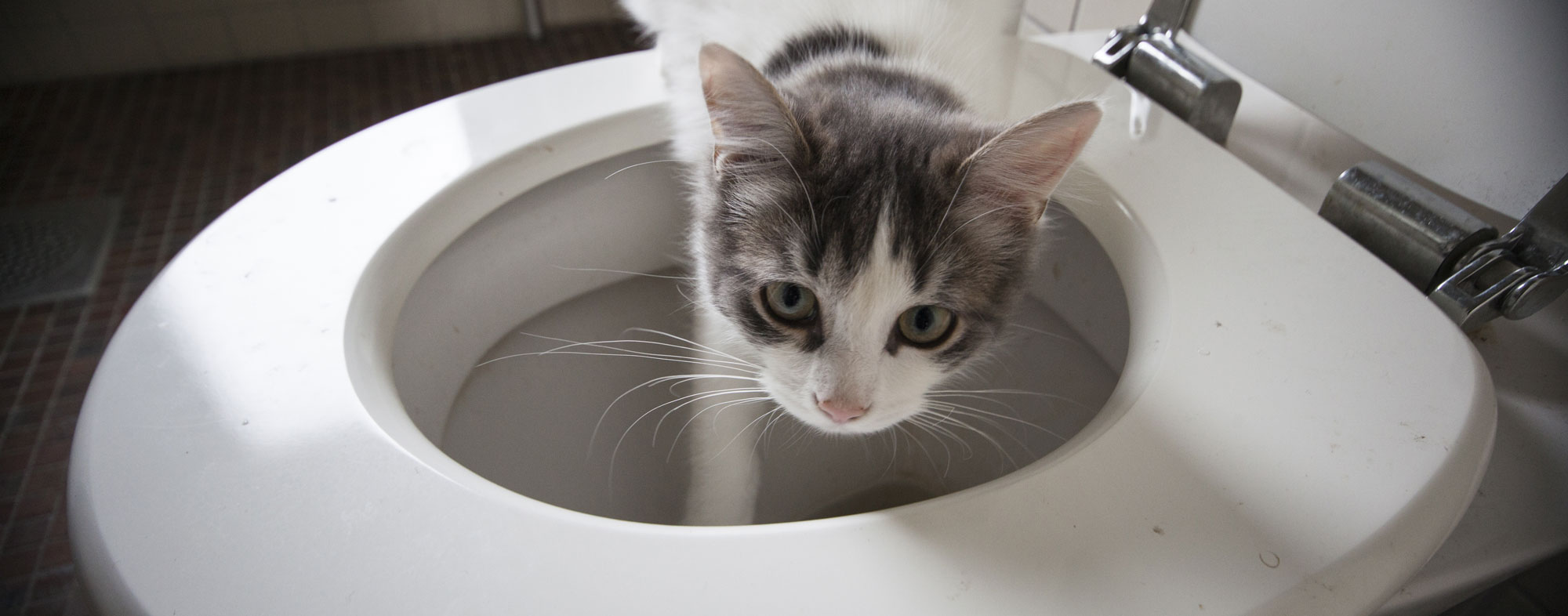Never Flush Cat Poop Down Your Toilet - Protect Your Pipes System
Never Flush Cat Poop Down Your Toilet - Protect Your Pipes System
Blog Article
This great article which follows in relation to How to Dispose of Cat Poop and Litter Without Plastic Bags is seriously engaging. Don't skip it.

Introduction
As cat proprietors, it's necessary to bear in mind how we dispose of our feline friends' waste. While it might seem convenient to purge pet cat poop down the commode, this technique can have destructive effects for both the environment and human health and wellness.
Environmental Impact
Flushing feline poop introduces hazardous virus and bloodsuckers into the water system, positioning a significant danger to water communities. These pollutants can adversely influence aquatic life and compromise water top quality.
Health and wellness Risks
In addition to environmental issues, purging cat waste can additionally posture health risks to humans. Cat feces might consist of Toxoplasma gondii, a bloodsucker that can trigger toxoplasmosis-- a possibly extreme illness, especially for expectant women and individuals with damaged body immune systems.
Alternatives to Flushing
The good news is, there are more secure and a lot more responsible means to dispose of feline poop. Consider the adhering to alternatives:
1. Scoop and Dispose in Trash
One of the most common technique of getting rid of pet cat poop is to scoop it into an eco-friendly bag and throw it in the trash. Make certain to use a specialized clutter scoop and get rid of the waste without delay.
2. Usage Biodegradable Litter
Opt for biodegradable feline litter made from materials such as corn or wheat. These litters are environmentally friendly and can be safely taken care of in the garbage.
3. Hide in the Yard
If you have a lawn, consider burying pet cat waste in a designated location away from veggie yards and water sources. Make sure to dig deep enough to prevent contamination of groundwater.
4. Mount a Pet Waste Disposal System
Invest in a pet dog garbage disposal system especially created for pet cat waste. These systems make use of enzymes to break down the waste, decreasing odor and ecological impact.
Verdict
Accountable family pet ownership extends beyond giving food and shelter-- it likewise entails appropriate waste management. By refraining from purging feline poop down the bathroom and opting for alternate disposal approaches, we can reduce our ecological impact and protect human health and wellness.
Why You Should Never Flush Cat Poop Down the Toilet
A rose by any other name might smell as sweet, but not all poop is created equal. Toilets, and our sewage systems, are designed for human excrement, not animal waste. It might seem like it couldn’t hurt to toss cat feces into the loo, but it’s not a good idea to flush cat poop in the toilet.
First and foremost, assuming your cat uses a litter box, any waste is going to have litter on it. And even the smallest amount of litter can wreak havoc on plumbing.
Over time, small amounts build up, filling up your septic system. Most litter sold today is clumping; it is made from a type of clay that hardens when it gets wet. Ever tried to scrape old clumps from the bottom of a litter box? You know just how cement-hard it can get!
Now imagine just a small clump of that stuck in your pipes. A simple de-clogger like Drano isn’t going to cut it. And that means it’s going to cost you big time to fix it.
Parasitic Contamination
Believe it or not, your healthy kitty may be harboring a nasty parasite. Only cats excrete Toxoplasma in their feces. Yet it rarely causes serious health issues in the cats that are infected. Most people will be fine too if infected. Only pregnant women and people with compromised immune systems are at risk. (If you’ve ever heard how women who are expecting are excused from litter cleaning duty, Toxoplasma is why.)
But other animals may have a problem if infected with the parasite. And human water treatment systems aren’t designed to handle it. As a result, the systems don’t remove the parasite before discharging wastewater into local waterways. Fish, shellfish, and other marine life — otters in particular — are susceptible to toxoplasma. If exposed, most will end up with brain damage and many will die.
Depending on the species of fish, they may end up on someone’s fish hook and, ultimately on someone’s dinner plate. If that someone has a chronic illness, they’re at risk.
Skip the Toilet Training
We know there are folks out there who like to toilet train their cats. And we give them props, it takes a lot of work. But thanks to the toxoplasma, it’s not a good idea.

I'm certainly very intrigued by Can You Flush Cat Poo or Litter Down the Toilet? and I am assuming you enjoyed reading the page. Appreciated our blog posting? Please share it. Let others check it out. Thanks a bunch for your time. Please come by our site back soon.
Phone Report this page